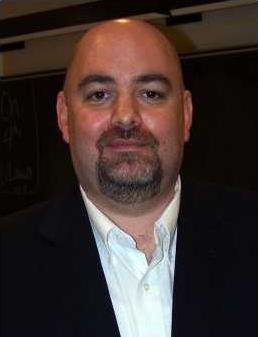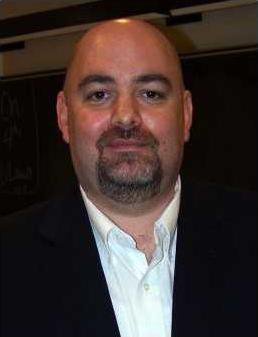According to the U.S. Census Bureau, 75 percent of American adults identify themselves as Christians. With such an overwhelming majority, members of the Secular Student Alliance at Gainesville State College thought it would be easy to find someone willing to share their Christian beliefs in a debate against an atheist. However, such was not the case. "With all the churches my husband and I attend in the area and with all the sermons we listen to on a regular basis about the evils of atheism, we thought preachers would be lining up for a chance to debate a real live atheist in public," said Devidyal Givens, a Gainesville State student. "I contacted close to 20 evangelical leaders in the Gainesville area before Covenant Connections (Church in Flowery Branch) stepped up to the plate. I am truly grateful that Mark Allison would participate." Although Allison was inexperienced, he welcomed the opportunity. "I’m very surprised that more people wouldn’t come out and discuss Christianity with someone who has opposing views," said Allison, Covenant Connections School of Ministry director. "If Christianity is true, and I believe it is, it should be able to stand up to debate." During the debate, Allison shared the stage with Matt Dillahunty, who is the host of "The Atheist Experience," a public access channel program that airs in Texas. The debate centered around a main topic — "Good Without God." "It’s hard to avoid hearing, ‘God is good and without God there is no good and atheists are all evil,’" said Givens, who is an atheist. "Secularists disagree with that wholeheartedly. (There is) a very long list of atrocities all done in the name of God. Sure there are good things done in the name of God, but Christians too often forget the evils done for the sake of God." Although they covered many topics, that was one area where the two debaters agreed — all people, whether or not they’re Christians, have the ability to be good. The real question, Allison says, is whether or not people could be morally just, if there wasn’t a God to define the moral categories like good and bad. They also covered issues like stem cell research, cheating spouses and dealing with teen relationships. Dillahunty and Allison answered spontaneous questions from the audience and also presented points and counter-points to prepared questions submitted by students. One exchange focused on the belief of redemption in the afterlife. "From a Christian perspective, there’s always a chance for redemption and hope, no matter what you’ve done," Allison said. "Whenever you get to a point in life where you need to make a decision, God says, ‘Will you follow me or go your own way.’ We either follow, or do our own thing. Every time we reach a crossroads, we have that option for redemption." Dillahunty didn’t completely agree. He believes people should do the right thing now, instead of focusing on an ability to possibly redeem your behavior later. "This is the one and only life I’m going to get as far as I can tell. Meaning we need to be held accountable for our actions in the here and now," Dillahunty said. "If this is the one and only life that I get, I should do right by people now." Instead of teaching children to follow certain religious ideologies, Dillahunty says there are more pressing lessons to be taught. "The idea that we live in a vacuum is nonsense. Every one of my actions impacts everyone around me," Dillahunty said. "Teaching kids about honesty, self-respect and personal responsibility is one of the best things you can do." According to Givens, the purpose of the debate wasn’t to say that one way of thinking was right and the other was wrong. Instead, it was about opening lines of communication between everyone, believers and nonbelievers alike. "My hopes were that at least one person who walked into the room believing that all atheists are evil people, would walk out of the room at least considering that may not be true," Givens said. "Colleges and universities should be places of diversity, critical thought and most importantly, a place to have new ideas shown to you. "How can we have an intelligent youth make informed decisions about their lives and the future of the world if all they know is a small, small world of conservative Northeast Georgia?"
Religious debate starts a conversation between believers and nonbelievers

